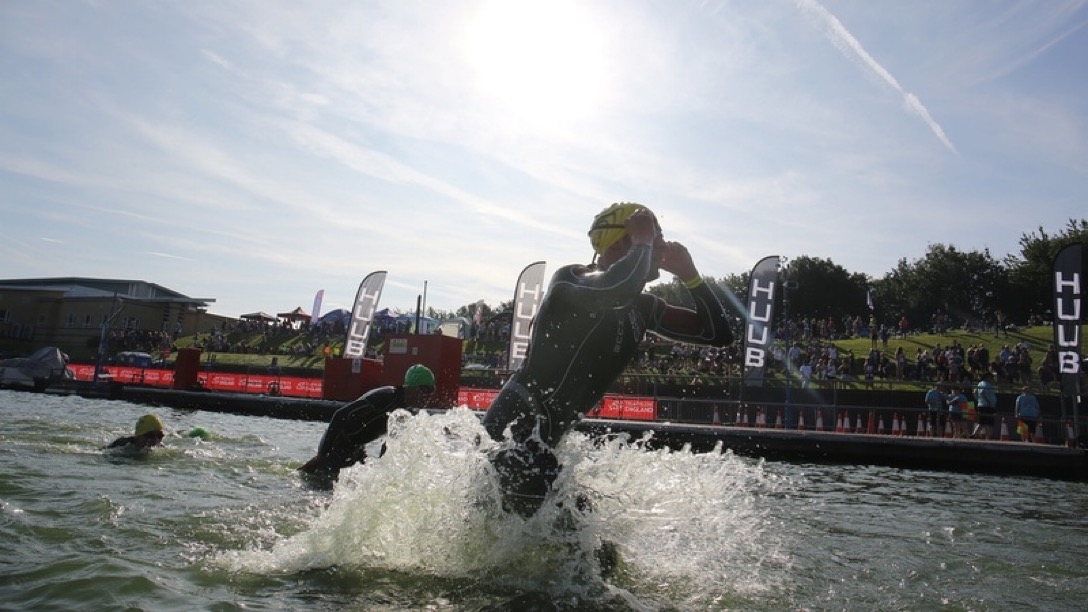
Sport writer Alex Lancaster-Lennox comments on the creation of the Triathlon Super League, a format that promises to appeal to the masses
Super League is the new Championship format that aims to turn the tedious and long-winded Olympic triathlon into a dynamic and daring race.
What happens when you take the World’s best triathletes, five exciting destinations, and a dynamic new format? You get a Championship that has taken the triathlon world by storm. Super League, which launched in 2016, has grown in popularity in recent years due to its focus on creating an interesting spectator sport and a demanding challenge for the world’s best athletes.
As a recent triathlon enthusiast, my interest for the sport was cemented during the 2021 Championship, which saw the format reach new levels of drama, challenges, talent, and successes. It was a must watch in my sporting calendar from September to November. With the new Championship getting underway in London this Sunday, there was no better time for me to sit down with some of the faces of the sport: Non Stanford, Taylor Spivey, Chase McQueen, and Emma Jeffcoat to find out what they think makes Super League so super.
Firstly, let me give you a quick run-down of what to expect this year. Five venues across nine weeks: London, Munich, Malibu, Toulouse, and Neom. Each venue takes on a different format to the tests the athlete’s ability to think on their feet, adapt to what they are used to, and provide a new physical challenge to ultimately see who is the best-of-the-best.
The first format is Triple Mix: shuffling the traditional swim-bike-run format, changing the order across the 3 stages. Enduro is non-stop racing of swim-bike-run repeated three times. The Eliminator is the final format the athletes must face; consisting of swim-bike-run with a short break in between the three stages with athletes eliminated at the end of each stage. Each stage is a sprint distance in comparison to the commonly known Olympic distance, meaning that it is about speed, strength, and agility. To throw even more into the already full pot, the 20 men and 20 women are put into five teams and work together to have both an individual winner and an overall team of the Championship. With twists and turns along the way and big prize money up for grabs, it’s really all to play for.
With twists and turns along the way and big prize money up for grabs, it’s really all to play for
The concept is ever-changing, and each year is even more engaging than the last. On the Super League website, they explain ‘there is no waiting around for eight hours for a result or watching a tedious pack cycle on a flat course for an hour.’ The focus is on the spectator which is why this year they have introduced the Fan Team, overseen by ex GB triathlete Annie Emmerson. The Cheetahs are completely controlled by the viewers from designing the kit, selecting the team, and deciding who should get the all-important Short Chute. It is a daring move that brings the sport to the viewers in a way that is exciting and could affect the championship in its entirety.
But what do the triathletes think? I asked Taylor, Non, Chase and Emma about their expectations ahead of this year.
Non Stanford, ex-Birmingham Sports and Exercise Science student, started her triathlon career at UoB and has decided to retire from the sport with Super League as her swan song. She said that she wanted to end with Super League because ‘I joined the sport for the enjoyment so to end on something fun, seems right.’ She also said that ‘she didn’t want to miss out after having so much fun with the travelling circus last year.’
The sense of fun and camaraderie is clear and a reason for why many want to take part. Chase McQueen makes his Super League debut at these Championships and describes how excited he is to race against the best. Each year Super League ‘brings a really competitive start list which means you can learn from those you are racing with and against.’
Although the Championship appears to be a lot of fun, it is a physical challenge that many of the athletes will have to overcome. With the season spanning across nine weeks, some will also have to balance this intense racing alongside the end of the World Triathlon Series which tests the athletes across the Olympic Distance.
Although the Championship appears to be a lot of fun, it is a physical challenge that many of the athletes will have to overcome
Emma Jeffcoat, a veteran of the sport, says how this is going to be a challenge because ‘recovery becomes critical.’ This is a sentiment Non Stanford supports as it comes down to who can recover the best. Taylor Spivey acknowledges ‘Super League requires athletes to be sharp and ready from the Go’ however she followed with ‘I’m always up for a good challenge.’
Super League is something fresh and exciting for both spectators and athletes alike. In the words of Emma Jeffcoat, ‘there’s no question. Super League is changing the game. Everyone wants to be a part of this series and those not there are certainly watching!’
So, where do you stand? With days until the Championship kicks off in London, will you be tuning in to Super League? With the ever-changing format, Super League always delivers to keep things super exciting for its athletes but most importantly its spectators. If you are not a triathlon enthusiast yet, there is no time like the present because in the words of Chase McQueen ‘there’s no better time to be involved in triathlon’.
Check out the latest Sports articles here:
Comments